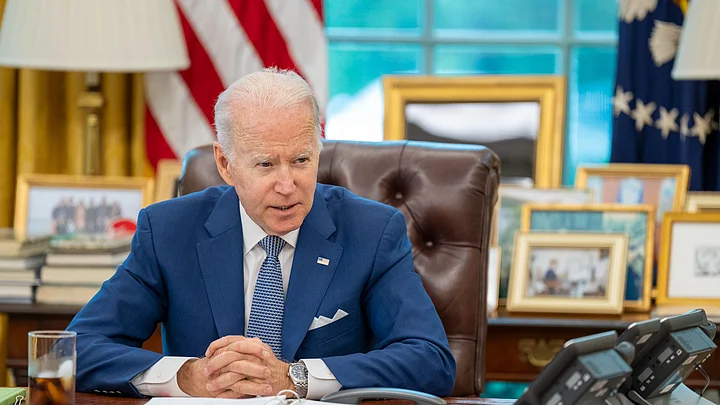As the war has dragged on, the Biden administration has progressively widened the array of weaponry it has provided to the Ukrainians, and the latest package will also include Javelin antitank missiles, artillery rounds, helicopters and tactical vehicles.
“We will provide the Ukrainians with more advanced rocket systems and munitions that will enable them to more precisely strike key targets on the battlefield in Ukraine,” the President wrote in his op-ed.
As Russia's invasion of Ukraine enters its fourth month, the Biden administration continues to widen the array of weaponry provided to its ally, with the latest installation which includes Javelin anti-tank missiles, Stinger anti-aircraft missiles, artillery, Mi-17 helicopters, and UAVs.
A US official told reporters that a centrepiece of the weapons package are HIMARS, or High Mobility Artillery Rocket Systems, an important upgrade to the shorter range weapons used by Ukraine, Times of India reported.
The deployment of HIMARS allows forces to conduct precision strikes at a longer range. Moreover, the official said that HIMARS rockets "will enable the Ukrainians to more precisely strike targets on the battlefield from greater distance inside Ukraine and to help them repel Russia."
As Ukraine’s Donbas region sees the advance of Russian forces with the reported capture of the significant Severodonetsk city, the president in response to a presser’s question, on Monday, responded, “We’re not going to send to Ukraine rocket systems that can strike into Russia,” Reuters reported.
According to an AFP report, the HIMARS ammunition provided to Ukraine will not possess capabilities to reach a range of 300 kilometres. so they can't be used on Russian territory.
The Ukrainians would rather get a version with a range of almost 80 kilometres, a significant upgrade to its present capabilities, the official said.
While the US has been increasingly willing to provide Ukraine with longer-range weapons including M777 howitzer artillery as forces battling Russia see greater success, the West has also been cautious about growing risks, especially after Russia's military performance falls short of Vladamir Putin's apparent ambitions.
(At The Quint, we question everything. Play an active role in shaping our journalism by becoming a member today.)
